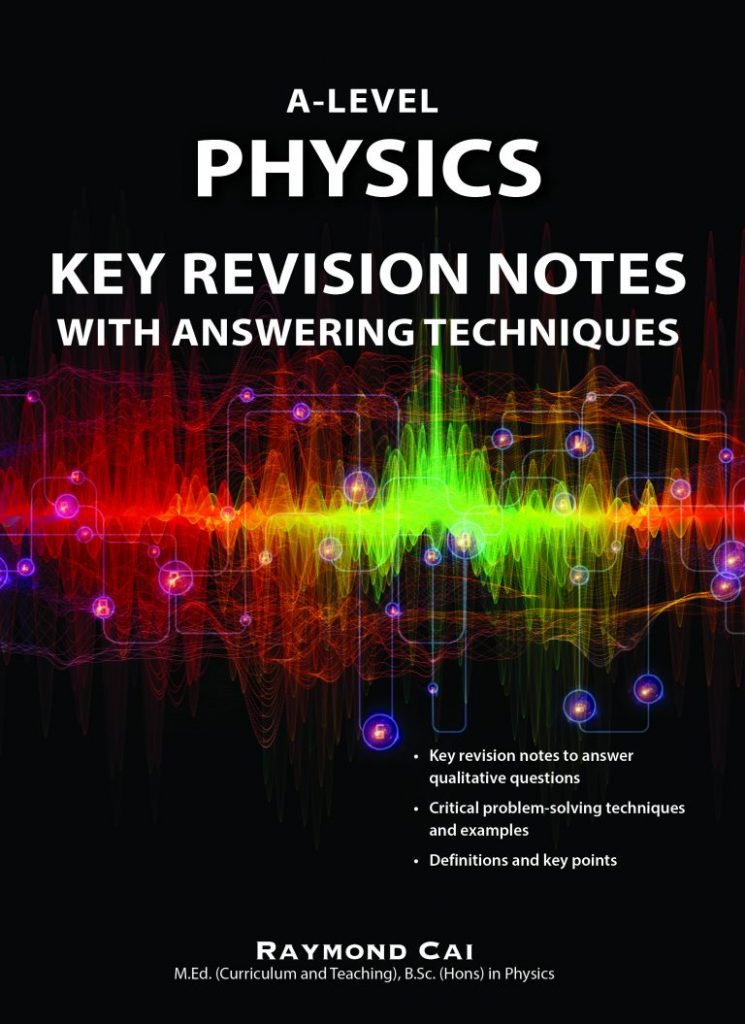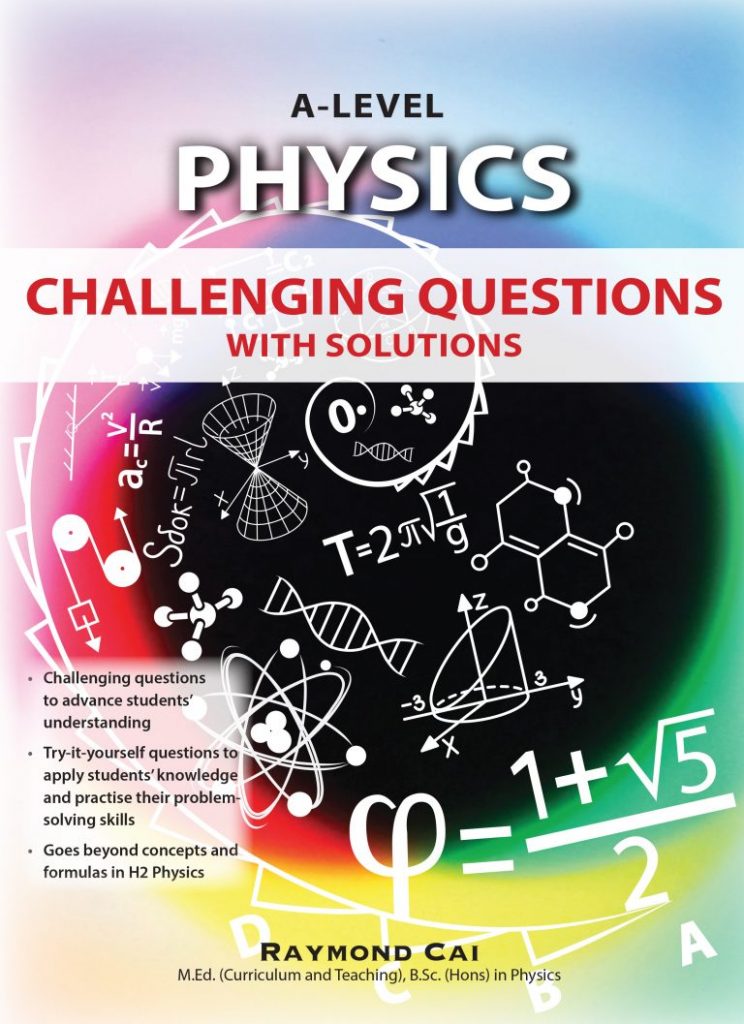Raymond Cai holds a Master of Education (specialising in Curriculum and Teaching) from the National Institute of Education, Singapore, as well as a Bachelor of Science (Honours) majoring in Physics from the National University of Singapore. Currently, Raymond teaches at the Learners’ Lodge. With close to 10 years of experience in teaching, he has since developed a programme to help students understand and appreciate physics, and to apply the concepts effectively and efficiently.
Raymond is the author of A-Level Physics Key Revision Notes with Answering Techniques and A-Level Physics Challenging Questions with Solutions. These books aim to help students prepare for their examinations by strengthening their understandings of Physics concepts.
In today’s post, he shares with us his tips on how students can revise effectively for their Physics examinations.
About your book: A-Level Physics Key Revision Notes with Answering Techniques

- How will this book help students master Physics questions?
This book will help students pick up the key concepts and formulas in each topic that are critical to answering A-level questions. - Why do many students stumble over common qualitative questions?
Students are often able to do calculation questions with sufficient practice, but often struggle to explain the concepts as a demonstration of their understanding. - What specific skills can students hope to develop in critical problem-solving with this book?
Through the carefully selected questions, students can gain a quick understanding of how the formulas are to be applied. - How can students achieve reflective thinking and how will it help in studying Physics?
After solving a question, students should consider how they can explain their working, as well as consider other factors that may affect their solutions. This will encourage critical thinking rather than learning through rote memorisation.
About your book: A-Level Physics Challenging Questions with Solutions

- How will this book help students learn beyond Physics concepts and formulas?
While learning Physics concepts and formulas aims to help students gain a rudimentary understanding of the key formulas, this book aims to expose students to tougher questions that will enhance their understanding as well as teach them how to blend the concepts across topics. - Can you share what is the most novel or challenging question you have encountered before in Physics examinations?
Sometimes, the most challenging questions are those that appear to be very straightforward. For example, when students were asked to write the general formula for the electric field, most students would give the formula of a point charge, while the correct answer is simply E = F/q.
3. How can students effectively demonstrate their understanding in addition to being able to apply key concepts?
Students should practise writing workings for their calculations because Cambridge often tests students on “derive” or “show” questions.
About Yourself/Work/Expertise

- Why did you choose to pursue a Bachelor’s degree in Physics?
I was always interested in Physics and engineering-related fields. However, during my Army days, I chanced upon Einstein’s theory of relativity and was so intrigued by it that I decided to pursue a degree in theoretical physics. - What are some of the common challenges that students face while studying Physics?
Students are often not able to see the underlying principles behind each topic. As such, studying for each topic sometimes feels like learning a completely new field. - How can they address such weaknesses?
Every time a student learns a new topic, it is often fruitful to slow down and try to link the concepts learnt with an earlier topic, and to compare their similarities and differences. One example would be to compare the concept of an electric field with a gravitational field. - What is the number one thing all Physics students should remember?
In doing calculations, make sure units are converted to S.I units where necessary. - Having spent close to 10 years in teaching, what is the number one piece of advice that you have for students?
Physics is not hard once one sees the underlying principles. Find them 🙂
6. What would you like your students to remember you for?
I would like them to remember me for my passion in learning, teaching and applying Physics in practically everything!
